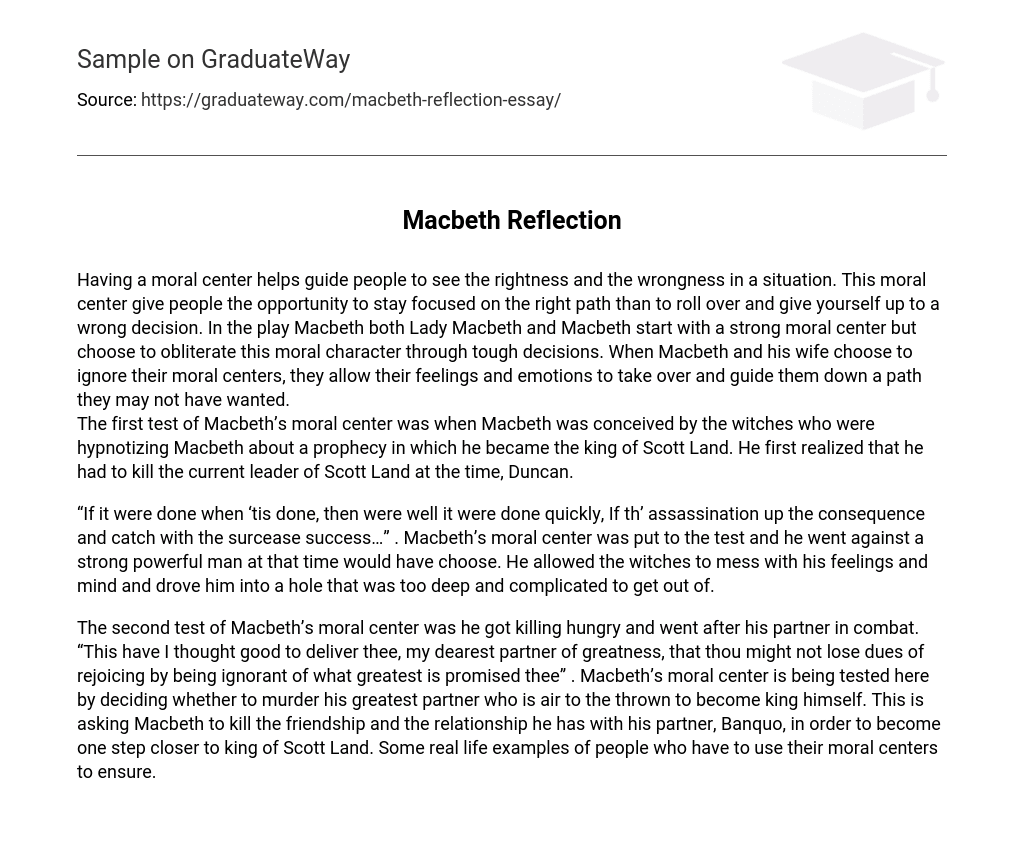Having a moral center is essential for guiding individuals to distinguish between right and wrong in a given situation. It provides the opportunity to remain steadfast in the right course of action rather than succumb to poor judgement. In the play Macbeth, both Lady Macbeth and Macbeth initially possess a strong moral center, but they ultimately abandon their moral compass by making challenging choices. By disregarding their moral centers, Macbeth and his wife allow their emotions and desires to dominate and steer them towards an undesirable path.
The first test of Macbeth’s moral center occurs when he encounters the witches, who manipulate him with a prophecy of becoming the king of Scotland. He realizes that in order to fulfill this prophecy, he must eliminate Duncan, the current leader of Scotland.
Macbeth’s moral center was tested when he allowed the witches to manipulate his emotions and thoughts. He went against what a strong, powerful man of that time would have chosen. The consequences of his actions caught up with him, showing that it would have been better to swiftly complete the deed. All of these factors led Macbeth down a complex and challenging path from which he struggled to escape.
Macbeth’s moral center is tested when he develops a strong desire to kill his comrade in combat. Macbeth informs his trusted partner, “I want to tell you, my dearest partner of greatness, so that you do not miss out on the rewards of rejoicing by remaining unaware of what has been promised to you.” This situation challenges Macbeth’s morals as he considers murdering his closest ally, who is also the rightful heir to the throne, in order to secure his own position as king. It compels Macbeth to sacrifice his friendship and relationship with Banquo as he strives to become the ruler of Scotland. Numerous real-life instances demonstrate how individuals must rely on their moral compass when making decisions.





